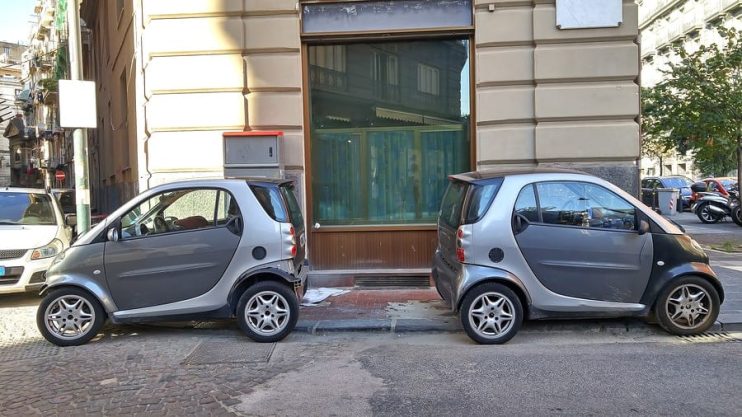
Buying a car is a process fraught with potential problems and dangers. There’s a reason why the stereotype of the used car salesman exists, although the majority of people who work in this field are reputable and honest.
Still, sometimes flood damaged vehicles appear on the market, sellers can pull off dodgy tricks and you’ll need to have your wits about you during your test drive. But there’s another red flag you’ll want to avoid when looking for a potential purchase, and that’s the cloned car.
Table of contents:
- What is Cloning?
- Why do Criminals Clone Cars?
- Cloned Car – The Consequences
- The Vehicle Identification Number (VIN)
- The Main Warning Signs
- Has your Car Been Cloned?
- Have you Brought a Cloned Car?
What is Cloning?
Vehicle cloning is like a kind of identity fraud. Villains steal a car or attempt to pass off repairs on a write off, and then copy the identity of a similar vehicle that’s already legally on the road. The unique 17 digit VIN number is duplicated on the stolen vehicle and a fraudulent forged logbook usually accompanies the crime as the seller tries to legitimise the car’s history. If they are successful in this scheme, there will be 2 vehicles on the road sharing the same identity.
Why do Criminals Clone Cars?
One of the most common reasons for cloning is to hide the identity of a stolen car, but there can be other reasons. It could be that the vehicle is a restored right-off or a recipient of the dreaded cut and shut. Another potential reason could be a large amount of fines, speeding tickets or even stolen petrol associated with the original vehicle’s history.
Cloned Car – The Consequences
Normally if you are found to have a cloned car, this will be taken off your hands and off the road by the police, resulting in your money being forfeit as the criminals disappear and fail to answer calls or emails. You’re then left massively out of pocket and in desperate need of another car.
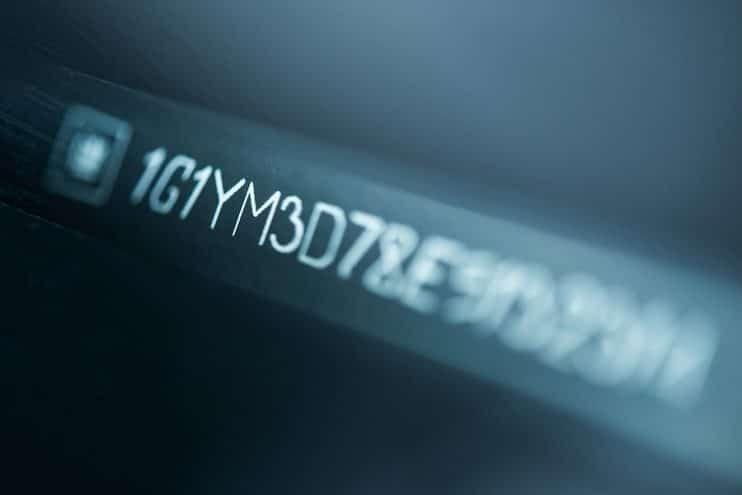
The Vehicle Identification Number (VIN)
The VIN number is a crucial element in the cloning process. It’s vital that you know where it can be found on a car and check that it matches the one listed in the vehicle’s V5 document. In modern cars it’s also possible to check through these numbers through the infotainment system.
Once you have the VIN this also gives you access to the manufacturer’s records, which will have details that you can check, such as engine spec and colourings that could give you a little extra help in identifying a cloned car.
If there’s inconsistencies between the 2 numbers or there appears to be signs of tampering, it’s time to thank the seller, leave and report them to the police.
The Main Warning Signs
Now you know the cloning basics, what are the real, usable and practical tips you can employ to ensure that you’re not on the receiving end of this deception?
Advertising
Little subtle signs in the advert could be a good giveaway. Poor spelling and inconsistent photography on sites like Autotrader can be enough to push you away and if you’re buying on eBay then feedback is your best friend, as previous buyers will waste no time leaving negative reviews for bad sellers.
Pricing
Work by the old adage that if something sounds too good to be true, then there’s usually a con or a problem that’s being hidden from you. Any car for sale under 30% of the normal market value should get your radar going.
Find out the normal pricing for a make and model that’s caught your attention and if you’re getting offered a bargain that comes with a dose of pressure from the seller for a fast arrangement, such as a bigger knock down for an early agreement, then walk away.
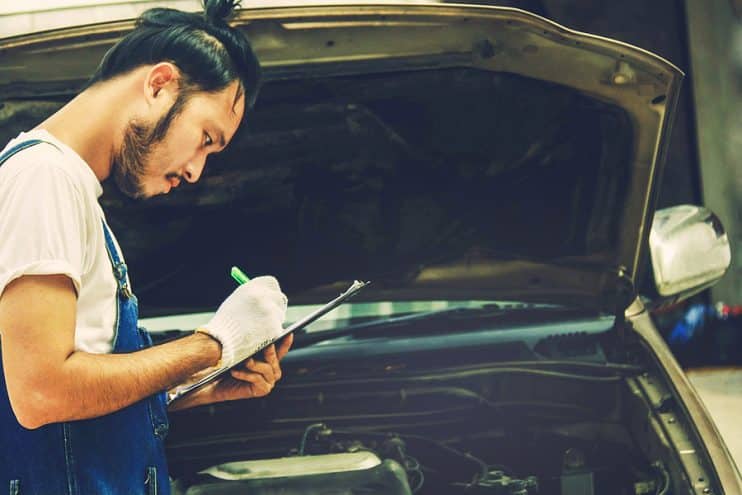
Address Checks
Does the seller’s address match the V5 document? If these are the same, then go ahead and buy before checking these also match up properly on the invoice.
Familiarise yourself with the V5 document to avoid counterfeited or forged documentation. And if you have the slightest suspicion, call up the garages mentioned in the service history to ensure there’s no deception taking place. And we’d always advise you to avoid buying from a seller on the side of the road.
MOT History Check
It’s free to complete MOT checks online and this can be an extremely helpful tool in spotting a cloned car. Make a note of the mileage and verify that there’s a reasonable match between the listed number and the one displayed in the vehicle (remember that there will be miles put on the clock after the test).
Additionally you can try to catch the seller out with a trick question about the MOT history, either asking about a part that wasn’t replaced, or confirming that one that has been changed is the original.
Missing Documents
A good owner who is concerned about their vehicle’s sell-on value will always keep documents organised in a safe place. As a result they’ll be happy to show you everything before the sale. Anyone who says they’ll get documents to you later could be hiding a cloned car.
Ensure that you see the V5 form before you even talk about money and beware of statements like “get it to you in the post” or “drop it off with you later”. If the sale is important enough to the seller and they’re legit, then they won’t do anything that will hinder all the hard work they’ve put into a potential sale.
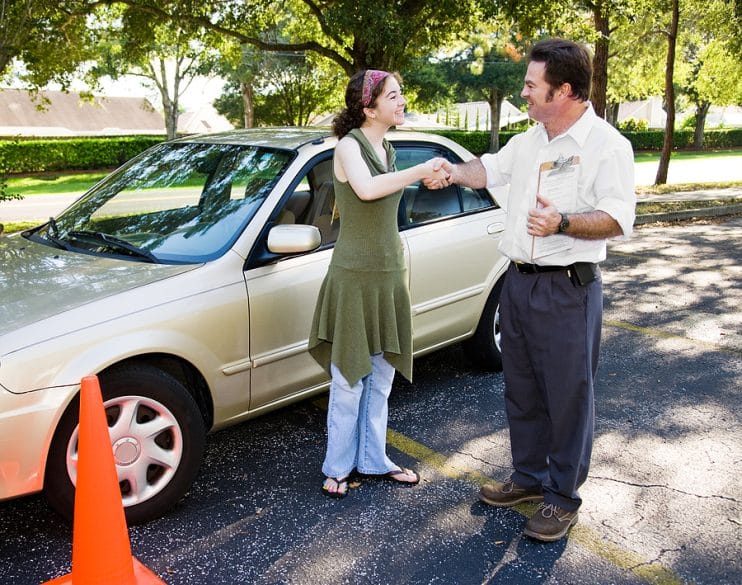
Vehicle History Check
Performing a vehicle history check (also known as an HPI check) will show a number of key facts about any car. Fortunately this includes if a vehicle has been written off, reported in connection with crime, or is still under a finance agreement. Most importantly it will let you know the last change of owner, which is a key question to ask, as a cloned car seller will have no idea about the car’s history.
Never Pay Cash
Unknown seller? Even if they seem very honest avoid paying by cash. Criminals like to leave no evidence trail, and could offer final discounts as an incentive, to attempt to close quickly for an off the books deal. As a compromise with a seller who is looking at other buyers, if it is normal to leave a modest cash deposit, but you’ll always want to pay the outstanding amount through a bank transfer.
Has your Car Been Cloned?
If you have a strong suspicion your car has been cloned, then return any tickets or fines you have received erroneously as soon as possible, together with evidence that you were not in control of the vehicle at the time of the infraction. Next immediately get in contact with the DVLA to make them aware of the duplicitous vehicle. Finally contact the police so they can look into the matter.
Have you Brought a Cloned Car?
There’s not much you can do in this situation. Usually you’ll be in possession of a stolen car, which means you don’t have much recourse under the law. There may be some exceptions, such as the seller owning the car that’s been cloned, which means in certain situations you potentially may retain the vehicle. However in the majority of the times the result is loss. This is why it is so important to perform your due diligence before purchasing any vehicle.









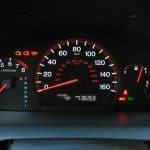



.png)